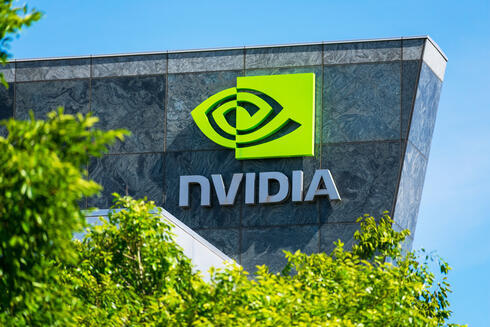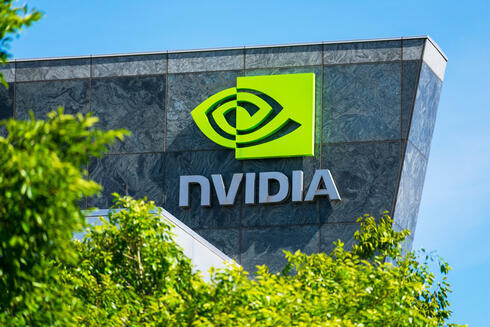
Analysis
Global chip market paying the price for Nvidia’s success
AI chip scarcity exacerbates disparity: How startups and tech giants navigate the challenge
The recent surge in generative artificial intelligence represents a significant development for chip giant Nvidia. Graphics processors (GPUs), particularly Nvidia's advanced models, have become the preferred processing units for many companies in the field. This preference stems from GPUs' remarkable ability to swiftly and efficiently perform the complex calculations needed for AI model development—tasks that involve analyzing vast amounts of data.
Nvidia's market value has risen sharply in recent months, exceeding a trillion dollars. This accomplishment marks a historic milestone for the chip industry, making Nvidia the first chip company to surpass this symbolic threshold. Furthermore, this value is a remarkable 681% higher than Intel's market value, a company that once dominated the domain.
However, Nvidia's near-complete dominance in the AI processor realm has inadvertently given rise to a pressing issue in the market: a bottleneck in the supply of necessary chips. This bottleneck is particularly problematic as it compels companies to explore creative avenues to secure the essential computing power they desperately need.
In the realm of artificial intelligence, GPUs represent a significant investment. For instance, Inflection AI, a startup based in Palo Alto, raised a staggering $1.3 billion from major players like Microsoft and Nvidia. The startup intends to allocate at least 95% of this funding towards acquiring graphics processors. In a notable move, the company acquired 22,000 units of Nvidia's H100 processors in June. These processors are highly advanced and in great demand for developing generative artificial intelligence models. The official price for this product, as sold by authorized Nvidia distributors, is around $30,000 per unit or even higher. Notably, a CNBC report in April indicated that these processors were being sold on eBay for as much as $46,000. Since then, demand for these processors has continued to surge.
Typically, technology companies do not purchase AI chips directly. Instead, they access the required chips and computing power through cloud services offered by companies such as Amazon, Microsoft, and Google. However, the heightened demand for these services has led to the emergence of extensive waiting lists that can stretch up to a year. Such lengthy delays are wholly unreasonable in a field that was scarcely discussed in popular discourse just a year ago—a field characterized by rapid advancements.
This shortage has exacerbated the divide between companies in the industry. Large corporations with substantial cash reserves can easily procure the chips and computing power they need. Conversely, small startups and researchers are left without straightforward solutions. This discrepancy could potentially empower technology giants to consolidate and strengthen their dominance, thereby inhibiting the growth of new competitors. Ultimately, this could further solidify their control over the technology market, thereby impacting the global economy.
To overcome this significant challenge, startups are devising creative solutions, pursuing government grants that offer access to chips, attempting to enhance their company's technology to require less processing power, and even urge employees to consider using chips from outdated video consoles.
In other cases, venture capital firms like Index Ventures are utilizing their connections to acquire chips for subsequent distribution to companies in their portfolio. This month, the fund forged an agreement with Oracle to supply H100 chips, Nvidia's highly sought-after processors for AI tasks, along with less powerful A100 chips, to the startups it has invested in. Erin Price Wright, an investor at Index Ventures, explained that startups often find themselves on waiting lists that span up to nine months.
Two entrepreneurs from San Francisco, Evan Conrad and Alex Gajewski, are striving to offer a more systematic and enduring solution. They founded the San Francisco Compute Group, an initiative designed to enable startups and researchers to purchase access to graphics processors in small quantities. In July, they completed the acquisition of 512 H100 chips and announced plans to lease access to them. This move garnered hundreds of inquiries from startups, research organizations, and research students. Their objective is to aid startups by affording them the opportunity to procure only the computing power they require, eliminating the need for prolonged and costly commitments.
As for those unable to secure the coveted computing power, they are venting their frustrations on social media platforms. An anonymous creator, known only as Weird A.I. Yankochip, composed a parody YouTube song based on Billy Joel's hit "We Didn't Start the Fire." The song humorously highlights the companies that are consuming the global chip supply.
This predicament is not solely the concern of entrepreneurs and researchers; it extends to the global economy. Addressing it may necessitate substantial government intervention. At present, a handful of companies wield significant control over key technological services and products. Notable players include Apple, Microsoft, Google, Meta, and Amazon, along with smaller yet influential companies like Samsung and Salesforce. Historically, periods of technological transformation provide opportunities for new entrants to disrupt established orders and reshape industries. This phenomenon was evident with the rise of Apple and Microsoft in personal computing, Amazon in e-commerce, Google in search, and Meta in social media.
Nevertheless, the current AI chip supply limitations hinder startups from capitalizing on their ingenuity, agility, and adaptability. Despite the novelty and innovativeness of their creations, startups lacking adequate computing power are akin to racing boats without engines. While they search for engines—or even oars—the technology giants' vessels race full steam ahead, creating a chasm that could be impossible to bridge.
Resolving the AI chip shortage is undoubtedly on the horizon, likely within the next few months or quarters. The pressing question is whether entering the race once the issue is resolved will be worthwhile. If we wish for this dramatic technological transformation to facilitate the emergence of fresh forces that challenge prevailing models, diminish the stranglehold of technology giants on the global economy, and inject competition and innovation into the market, governments should consider measures such as extensive purchases of processors and computing power to support emerging players. Failing to do so could result in a status quo where the economic structure remains unchanged after the dust settles.














